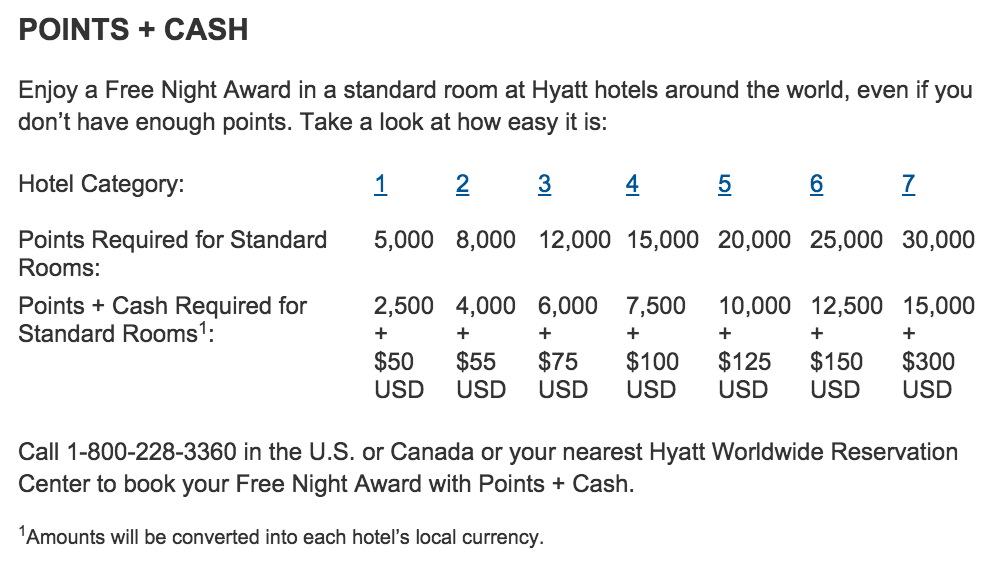A theoretical physicist walks into a bar….
Oh wait, that’s not right. In theoretical physics, everything happens inside a perfect vacuum.
No, I don’t expect you to have taken college physics (or even high school physics, for that matter) to get something out of this post. All you need to know is this: in physics, a perfect vacuum is a space that doesn’t have any external forces or influences so that when you do some sort of calculation (say, how far a meteor will travel in a given amount of time), you don’t have to take into account things like friction, gravity, or air resistance. That is to say, you can calculate without making any other considerations.
So how does this apply to travel hacking?
Yesterday, Vinh from Miles per Day posed the following question: is there ever a world in which Points and Cash redemptions are worthwhile when you can manufacture miles at some low (but non-zero) cost?
Table of Contents
The Standard Reasoning
The typical argument is that if the miles are worth more to you then the money you trade in exchange for the reduced points cost, then you should opt for the points and cash booking rather than a full points booking (there are also other considerations such as whether or not the stay counts towards status, but we’ll ignore those here). Take Hyatt redemptions for example. A Category 3 points redemption costs 12,000 points per night, whereas the same room could be had for a points and cash redemption of 6,000 points and $75. In that case, you’re buying back 6,000 of your miles for $75, for a cost of 1.25 cents per mile. Under the above philosophy, if Hyatt points are worth, say, 1.5 cents a piece to you, then you should clearly opt for the points and cash booking.
The problem with this reasoning is that we are acting just like our theoretical physicist, considering our tradeoffs in a vacuum. In reality, we need to consider the fact that we manufacture Hyatt points at a fraction of their valuation. How does this affect things? Well, consider being able to manufacture Hyatt points at ~.7 cents per point (which is achievable using a Chase Ink to buy $200 VGCs at Staples for a $6.95 fee). In that case, you’re better off doing a full points redemption for 12,000 points and taking the $75 you would have otherwise spent on the points and cash booking and using it to manufacture 11666 ($75/($6.95 cost /(206.95*5 UR earned)) Hyatt points. It’s pretty easy to see that this is a better deal than points and cash (again, excluding status considerations).
A Resounding No?
You might be tempted at this point to wrap up your discussion and conclude that the answer to Vinh’s question is a resounding no. But there’s another wrinkle here. The argument only works if we have an infinite capacity to manufacture UR/Hyatt points, which for most people is unrealistic.
When a resource is constrained, we have to consider the tradeoff against the best alternative use of the resource (i.e. opportunity cost, which is everyone’s favorite topic 😛 ). That is to say, Vinh’s argument holds as long as you don’t have an alternate use for the points, which happens when either a) you don’t find any use in the other UR transfer partners or b) you can manufacture an infinite number of points. If neither of those two conditions hold, then your tradeoff becomes not whether the cost of buying back your Hyatt points via a points and cash booking is less than the cost of manufacturing them, but whether that is less than the value you’d get out of an alternative use of UR. So, for example, if you would have otherwise spent 110,000 points on a Lufthansa first class redemption via United and valued the experience afforded to you by those points at 2 cents a piece, then it’s worth buying back the miles and opting for a points and cash booking. Otherwise, the standard reasoning applies.
It depends on your situation…
All this to say that there is no such thing as a theoretical travel hacker, or more specifically, that there is no single model of tradeoffs and values that we can apply across everyone involved in the hobby. Certainly, this makes things challenging, but that’s also what makes it fun.
Happy Hyatting!



Also remember that Hyatt points stays do NOT count towards status (i.e. not eligible night). Also you can’t use a DSU on a point stay. In both these cases you could use Points + Cash to make the most of your stay.
Yep! I think I mentioned that as an aside? Regardless, thanks for listing it out for people who might not have otherwise known.
Ah yes. My mistake!
Thanks for mentioning DSU’s though, since I (as a non-elite) didn’t realize that 😛
I think the various Hyatt scenarios are interesting b/c P&C bookings are suite upgrade-eligible and also help re-qualify for elite status. Other factors come into play b/c the cash portion is payable using a Hyatt giftcard (possible to get 15-20% off) or an AX SPG OPEN card (1 SPG pt + 5% off).
On the other side of the proverbial coin, the cash portion incurs hotel taxes and may trigger resort fees, all-point stays do not.
[…] A theoretical travel hacker walks into a bar…. – Do points + cash bookings make sense when you can manufacture points at a very low cost? […]
Also in the category of “it’s different for each of us” is the time factor. I love this hobby, but I work full time ++, and do not have time for much MS. So, while I am fascinated by those in the hobby who manage 8 BB accounts and MS of thousands of dollars a month, I cannot fathom a world in which I could do that. So, for me the time factor is primary, so I do not have unlimited access to points. For me P&C is the perfect balance. (Plus, I like to use my suite upgrades, and don’t have time to travel enough to use all of them, much less get beyond those 4 trips in a year.)
best way to do this is figure out the CASH you COULD HAVE received (usually 2.20 – 2.63%) in the manufactured spend you did to earn the extra points. Then determine: does 1) manufacturing the points and paying for all points stay or 2) manufacturing cash and paying for cash + points put you in in a better spot
[…] doesn’t necessarily offer the best value for cases where you have an unlimited supply of points (as explained in a previous post), in this case it offers tremendous value. Calculating the maximum costs using points and cash, we […]
[…] saving my points for later when they’re theoretically more valuable. But I don’t live in a theoretical world, so thankfully, I thought twice about it, which saved me both the out-of-pocket cost and gave me an […]